The Aragon-based company ARPA, a leader in mobile solutions for defence and emergencies, is moving towards its third generation while maintaining its commitment to innovation, sustainability and business resilience.
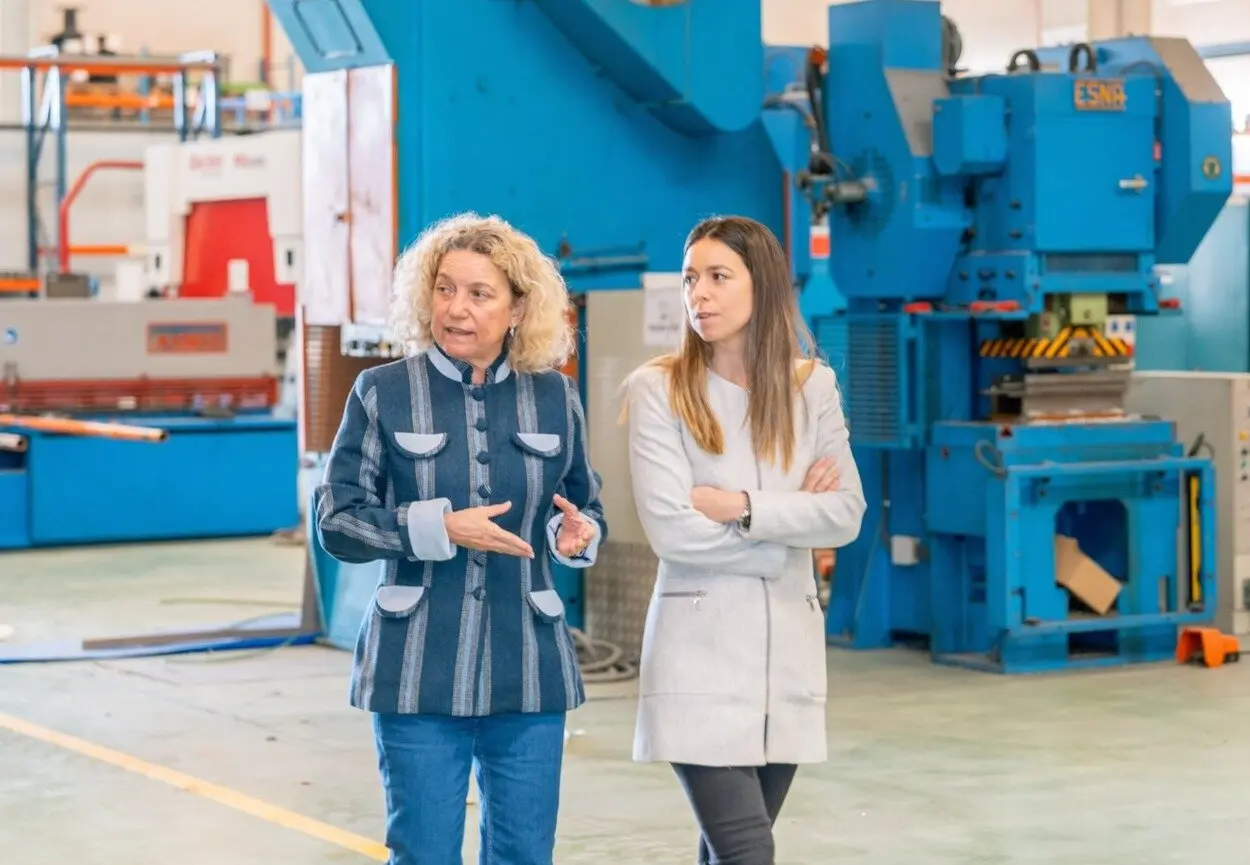
From a field kitchen to a hydrogen plant, from the first stoves for the army to cutting-edge solutions for humanitarian emergencies. ARPA Mobile Field Equipment has been around for over 50 years and continues to reinvent itself without losing its essence. An Aragonese company that has made ingenuity a way of life and which today, under the leadership of Clara Arpa as CEO, is moving steadily towards a new stage: that of its third generation, represented in this interview with HOY ARAGÓN by her children Clara and Antonio (Titin) Labarta.
ARPA was founded in the 1960s with a product that would become its flagship: the field kitchen, an essential item for armies, NGOs and humanitarian missions. It was the starting point of a journey that has never stopped evolving. ‘From a field kitchen to an entire camp,’ sums up Clara Arpa, current CEO. ‘Innovation at ARPA never stops. Today we are working on hydroponics projects, atmospheric water generation and solutions that seem like the future, but make sense in the present.’
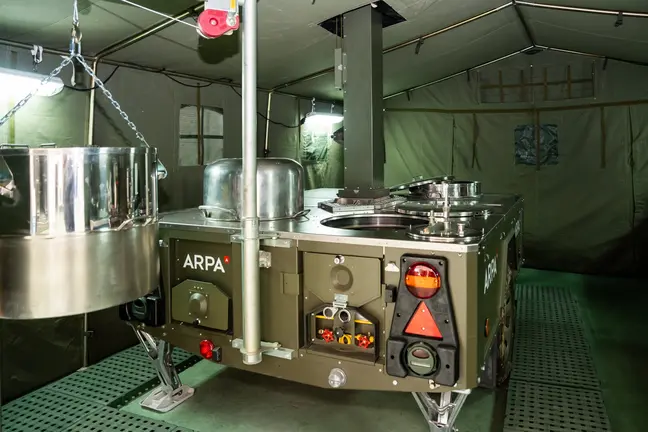
The history of ARPA is also a story of risks taken and visionary decisions. Clara Arpa took the reins of the family business with a clear intention: to go beyond what the market demanded. ‘In some cases, we have even gone too far ahead. But if you don't anticipate, if you don't diversify, you're out. You can't just stick with what you already know how to do well,’ she adds.
Now it is their children, Clara and Antonio, who are beginning to see their future linked to ARPA in the management of the family business and as the third generation. Both have grown up and worked at ARPA among prototypes, deployable containers, assemblies in conflict zones and logistics missions around the world. But they have also done so within a culture of responsibility. ‘What commands the most respect are the people who work here. The people who make this work every day,’ acknowledges Clara Labarta. ‘We know what uncertainty is, we have experienced it from the inside. But we also know how to deal with it,’ she insists.
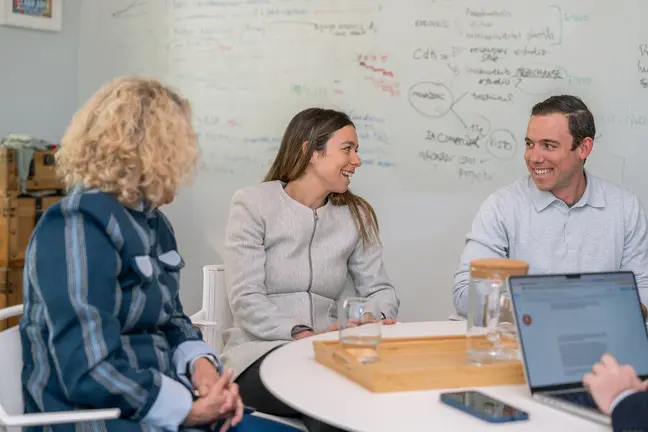
Antonio Labarta, for his part, emphasises the importance of adapting the legacy to the current context: "Family business is not an obligation, it is a choice. You have to find your place and decide from there. It is not about copying the past, but integrating it with the current way of understanding the company. Today we talk about purpose, impact, new organisational cultures... it's no longer about ties or hierarchies, but about mixtures: about sweatshirts and responsibility."
Both agree that the greatest lesson they learned from their mother was her ability to persevere and grow even during the most difficult years, something they consider essential for leading an organisation in times of change such as these.
Innovation with a global perspective
ARPA has been committed for decades to technologies that seemed far-fetched at the time but are now a necessity: hydroponics, green hydrogen, energy self-sufficiency, and sustainable logistics. Many of these projects are still in the development phase, but the seed has been planted. "Innovation is costly. And not everything translates immediately into economic results. But if you don't take a chance, you won't get there,‘ insists Clara Arpa. ’And if you can get ahead of the future, all the better," she adds.
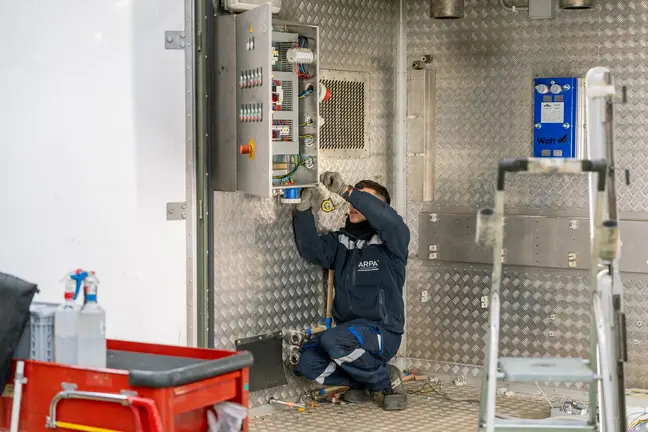
In the public sector, however, there is not always room for such ventures. According to the company, tendering processes do not always favour those who have been investing in quality and sustainable solutions for decades. ‘There are public tenders that are not awarded. Or budgets that are so low that they do not even cover costs. And in the meantime, companies without infrastructure are awarded contracts that they cannot execute with solvency,’ says Antonio Labarta.
This situation has led ARPA to open new lines of business with private companies that do understand investment in technology as a priority.
Defence and emergency services: the essential business that is gaining momentum
One of ARPA's main areas of activity is the defence and civil protection sector, where it supplies everything from field hospitals to water solutions, kitchens, mobile classrooms and habitable facilities.
Clara Arpa is categorical on this point: ‘For years, Europe has delegated its defence to the United States. That cannot continue. History has taught us that there will always be a Hitler, a Putin, someone who believes they have a right to everything. We must be prepared.’
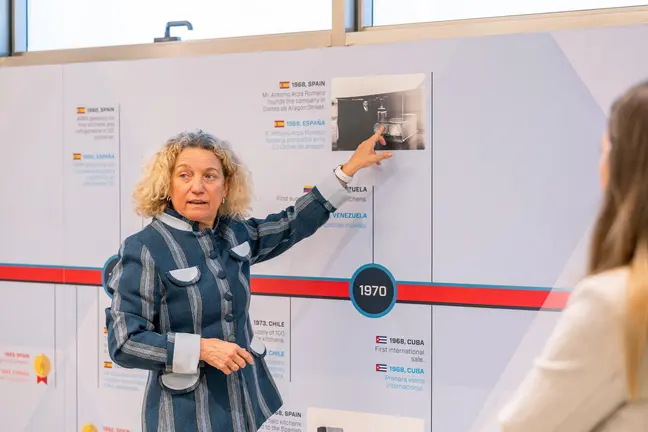
ARPA advocates the creation of a coalition of defence companies to act quickly in emergencies such as pandemics or natural disasters. They already did so during the DANA storm in Valencia and the COVID-19 pandemic. ‘Armies are, in reality, the most prepared NGOs in the world,’ Clara Labarta points out. "And in many countries, there aren't even modern field hospitals. It's incomprehensible," she stresses.
The company proposes formalising these alliances through consortiums or agreements with the Ministry of Defence to ensure an effective, coordinated response using national resources.
The challenge of retaining talent
One of ARPA's greatest assets is not its patents, but its highly specialised, technical and committed team. The third generation is clear that the key to the future lies in nurturing and developing this capital. ‘Our teams are of the highest calibre. But to remain at the forefront, we need to be more efficient, integrate new technologies and adapt to new production cycles,’ reflects Clara Labarta.
And although many past projects did not see the light of day in time—such as the use of hydrogen or applied hydroponics—ARPA is clear that these were long-term strategic investments. ‘The important thing is to have been there from the beginning. Now many of these technologies are taking off, and we already have the accumulated knowledge,’ says Antonio Labarta.
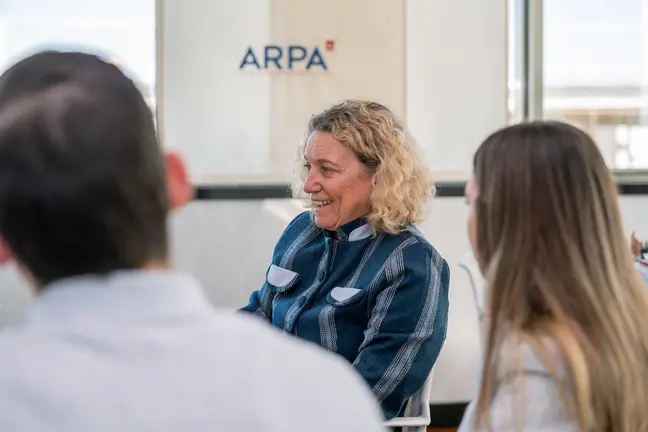
The future of ARPA lies in consolidating its international presence, diversifying its business lines and further professionalising its structure. But it also lies in continuing to be what it has always been: a family business with an innovative spirit.
‘I am convinced that they are ready. They have the ability, the training and the drive,’ says Clara Arpa about her children. ‘I just hope I can pass on everything I have learned to them so that their journey is a little shorter. Although I know they will have to stumble on their own. We all have.’
In a world full of uncertainty, ARPA has become a case study: a family-run SME that has managed to project itself globally without losing its essence. A company that, rather than selling products, designs solutions for a world that is changing every day. ‘The key is to maintain the essence of the past, but with a vision of the future. And that's what we're doing,’ concludes Antonio.


